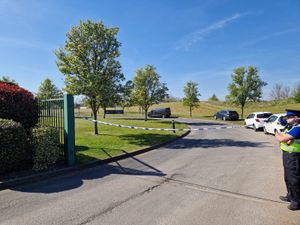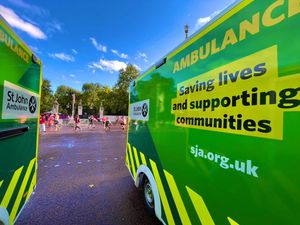211 children go missing in six months in Walsall
More than 200 children were reported missing in Walsall in just six months leaving them at risk of being exploited, new statistics have revealed.

Members of Walsall Council’s children’s services and overview and scrutiny committee were presented with information on child sexual and criminal exploitation.
And care bosses said children or young people who go missing are considered to be at risk of being exploited.
Between April and September this year, 211 children were reported missing with 104 going AWOL for the first time.
Of these, 51 per cent were male while 50 per cent were of white British heritage. Looked after children represented 25 per cent of the total number.
Children aged 10-14 made up 41 per cent of the 211, 37 per cent were 15-16, 18 per cent were 17 and four per cent were aged under 10.
Steve Liddicott, interim assistant director of children’s social care, said officers try to carry out "return home" interviews to get to the root of the problem but only a small number take up the offer and a review into the service to improve it was taking place.
Other statistics showed 106 children in Walsall who have been assessed as being at risk of sexual exploitation, with 10 rated as a serious (high) risk and 14 at significant (medium) risk.
This could see them subjected to being coerced, manipulated or deceived into violent or degrading sexual activities.
Criminal exploitation, the most common of which involves ‘county lines’ where gangs force children and young people into selling drugs, is also prevalent in Walsall.
Figures show that there are currently 48 assessed as being at risk of being criminally exploited within Walsall with seven classed as serious or high risk and 11 being of significant (medium) risk.
Mr Liddicott said: “One of the key things we look at are children who go missing.
“There are often changes in behaviour or children doing things differently such as having more money or being presented with gifts but the most common thing we look at are children who go missing from home and from care.
“A lot of young people only go missing once and they’re probably less likely to be at risk of exploitation but that is not always necessarily the case – children might be frequently absent from school and at risk of exploitation.
“We have a small team that works with children who go missing and one of our targets is to make sure that within 72 hours they are offered a return home interview. Some will take it up and some won’t.
“We’re not doing as well in terms of the percentage of those as we would like so we are undertaking a review of the service to improve the way we can see those young people and find out what it is that is happening to them.”
He added that efforts were being taken to tackle exploitation such as working closely with communities and families, raising awareness of the issue across the borough and developing existing partnerships with the police, youth services, health and voluntary groups.



